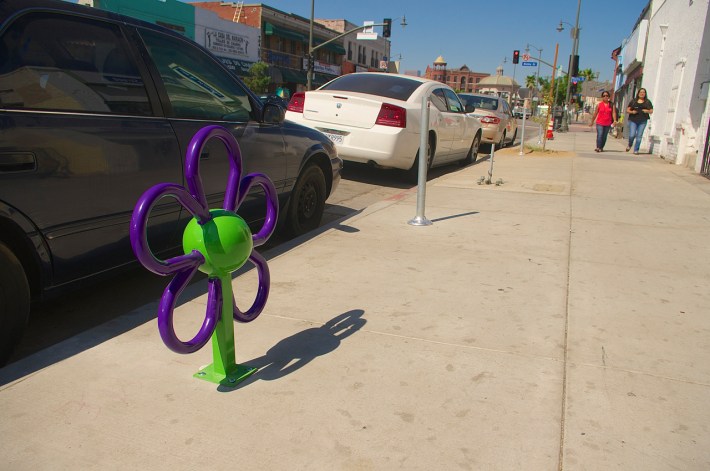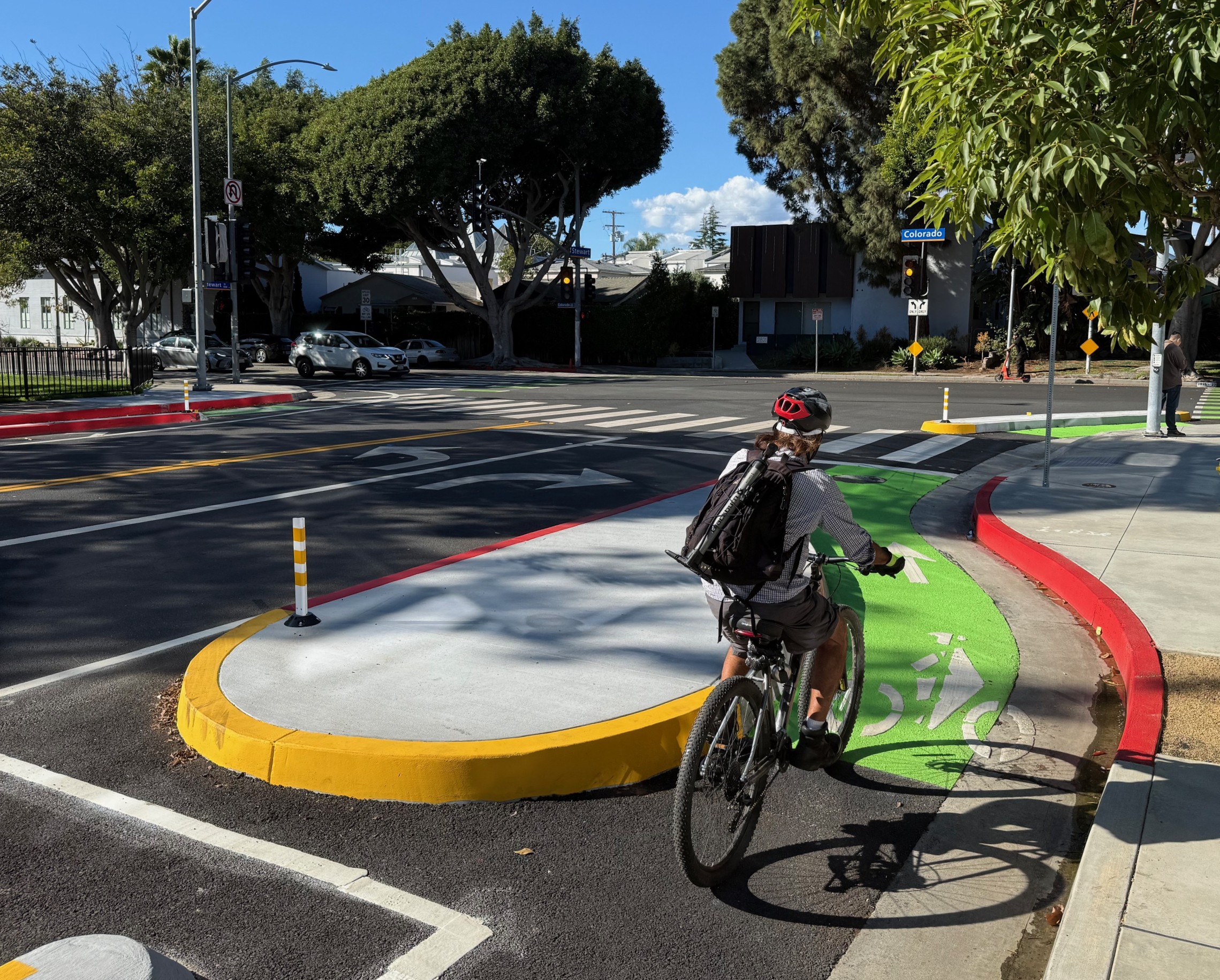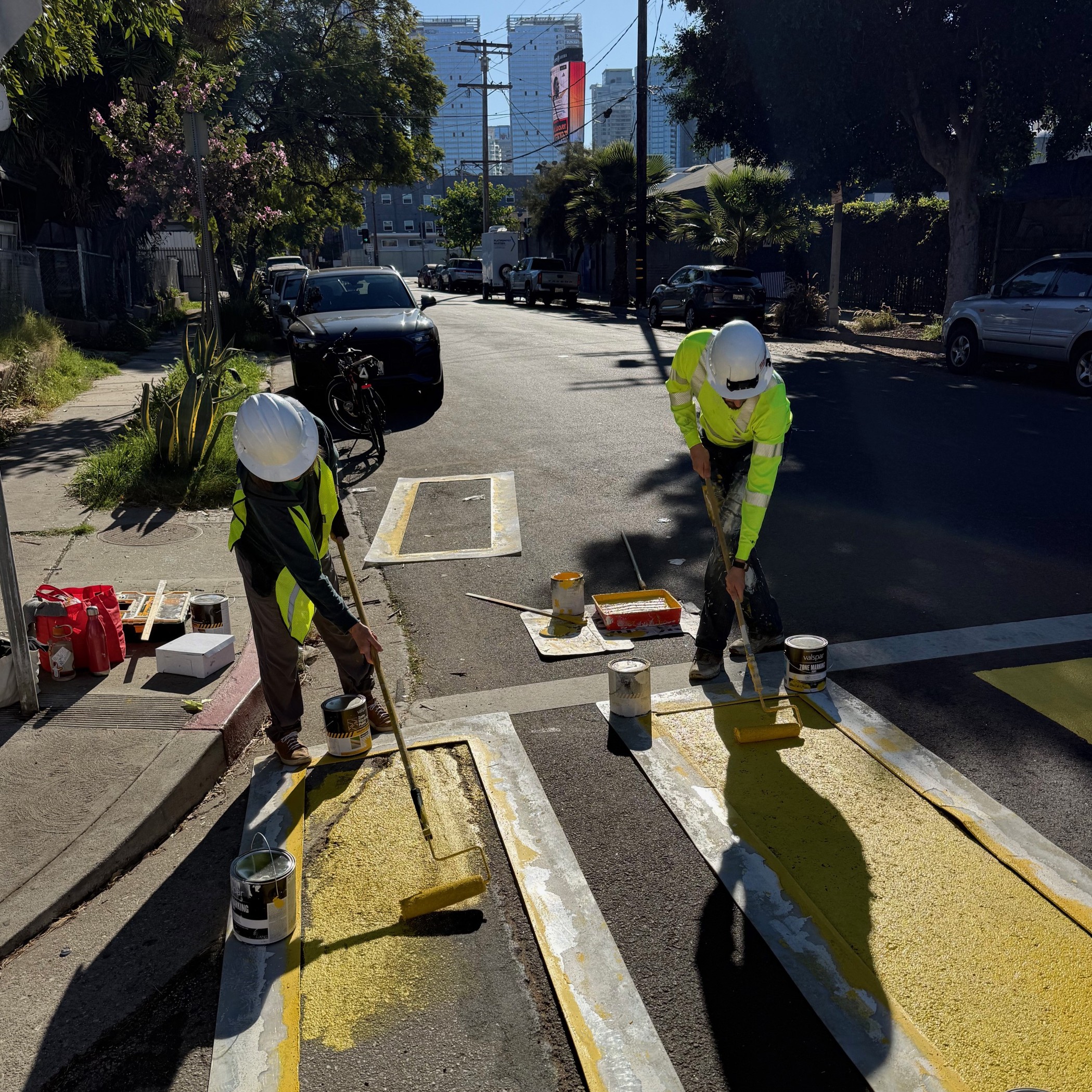Another day, another news story, another media outlet wielding an old saw like this one: high gas prices are a political problem for the president because Americans "love their cars." American car culture, fed by everything from our sprawled out landscape to a daily bombardment of car ads, is kept alive by journalists’ use of a set of hackneyed narratives. Beyond clichés, these story lines represent a collection of myths that shore up an unhealthy, unequal, and ultimately unsustainable car system.
Americans love their cars. A Google search for this statement returns 2.8 times as many hits as “Americans love their pets” and 6.3 times as many as “Americans love their guns”. Yes, there will always be automotive enthusiasts and drivers fond of their cars. But our car culture is both shifting and conflicted: The last time they were surveyed by Pew, Americans saying they saw their cars as “something special”, more than just a means of transportation, had dropped from 43 to 23 percent. Americans may need their cars in our transit-starved and poorly planned landscape, but with mind-numbing traffic and volatile gas prices, the luster is off the chrome.
Teens can’t wait to grab the car keys. The press persists in romanticizing a teen’s first trip to the DMV as the ultimate coming of age ritual. But it’s their middle-aged parents who are more likely to be champing at the bit, fed up with schlepping their kids and steeped in nostalgia about the freedom they felt when they first drove. But this generation is different. Already connected by smartphones and computers, and graduating into a terrible job market, young people are less car-happy than their parents were at the same age. Today’s teens are delaying getting their licenses and purchasing vehicles, and college students are more interested in living in urban centers where they can be less car-dependent.
The economy depends on the auto industry. The popular, business, and political media alike echo the fallacy that a healthy US economy depends on a healthy auto industry. This chorus helped justify the 2009 bailouts of GM and Chrysler. But the auto industry knows that the dependency is reversed: it needs economic growth, tax breaks and subsidies, and vibrant credit markets to sell cars. A nation more reliant on transit and active transportation would be one in which households had lower debt and more discretionary income to spend on housing, leisure, and other products, enriching a wide swath of industries. It would also be a nation, in the next downturn, less hostage to how a single industry’s fate might affect entire communities and supply chains.
The America car industry can return to its former glory. This theme, sounded in Eminem’s paean to the resurrection of Detroit in recent Chrysler ads, is a media favorite. It resounds in stories about car companies that succeed because they “build the cars that consumers want”. The reality is that profitability in an industry so mature, when most families already own multiple vehicles, requires money be made mostly on auto loans and extended warranties. Toyota, which rose to #1 in an era when the press blamed Detroit’s troubles on its having the wrong products, has been making more on car loans than on selling cars. The auto industry’s next heyday, if there is one, will be as a finance business, not a manufacturing or transportation business as it was at its, and the American economy’s, mid-20th century glory days.
We can’t fix the car system because poor people will suffer. Raise the gas tax? Institute congestion pricing? Eliminate oil subsidies? Limit risky offshore drilling? The news media regularly regurgitates the idea that these policies would make driving more costly and that this would necessarily hurt the working poor most of all. Of course, no group suffers under our current car system more than the poor, who devote a heftier chunk of their budgets to transportation than the rest of us and who are disproportionately victims of auto sales fraud, predatory lending, discriminatory insurance pricing, and racial profiling in traffic violations. Simple solutions like redirecting oil and auto subsidies to transit improvements and exempting the poor from new gas taxes would increase equality of mobility.
These myths about our car-dependent transportation system, and the industries that benefit from it, too often go unquestioned by journalists and opinion leaders. Advocates for transportation equity and for a modern transportation system must challenge these assumptions. Rather than let ourselves be paralyzed by these truisms or lulled into thinking these myths harmless, we must tackle these obstacles standing between us and a better transportation future.
Catherine Lutz, a Brown University anthropologist, and Anne Lutz Fernandez, a former marketer and banker, are the authors of Carjacked: The Culture of the Automobile and its Effect on our Lives (Palgrave Macmillan).







